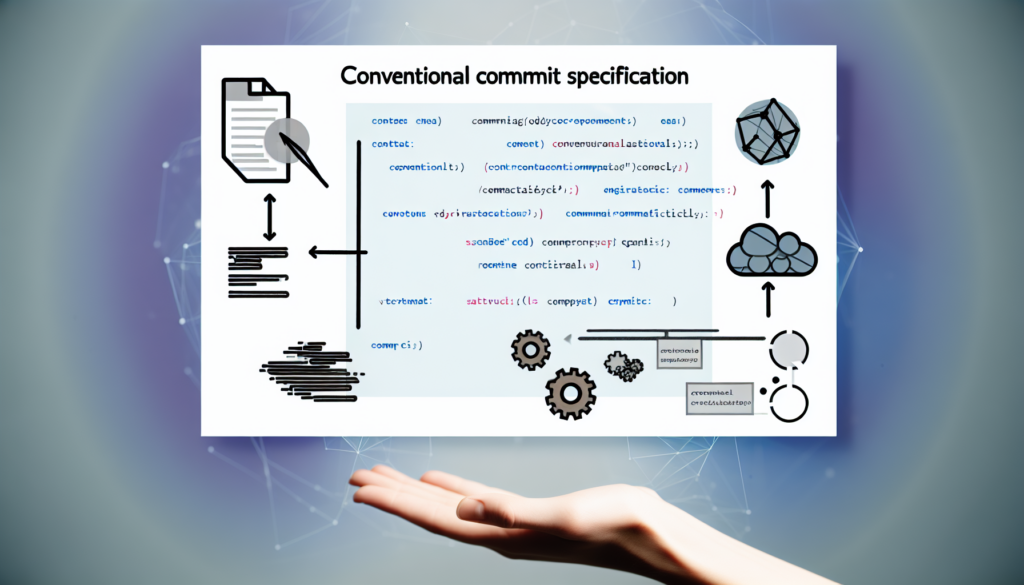The Evolution of Conventional Commit Specification 2024: What’s New?
Section 1
Embracing CCS Best Practices for Enhanced Team Collaboration
As software development continues to evolve, so does the need for standardized processes that streamline collaboration and increase efficiency. The Conventional Commit Specification (CCS) best practices have emerged as a cornerstone in this regard, offering a structured approach to commit messages that enhances readability and facilitates better team collaboration.
With the release of CCS 2024, developers are now equipped with an even more robust set of guidelines that cater to the dynamic nature of modern software projects. The updated specification includes nuanced categorizations for commit types and clearer definitions of scopes, ensuring that every contribution to the codebase is transparent and meaningful.
By implementing these best practices, teams can significantly reduce the overhead associated with deciphering commit histories, making it easier to track changes, identify issues, and streamline the onboarding of new team members. The result is a more cohesive and efficient development lifecycle that can adapt to the ever-changing demands of the industry.
Placeholder for Image

Section 2
Automate CCS Process: Tools and Techniques for Efficient Implementation
One of the most significant advancements in CCS 2024 is the emphasis on automation. The automate CCS process is no longer a luxury but a necessity for teams looking to maintain a high standard of codebase integrity. Automation tools play a pivotal role in enforcing commit guidelines without adding extra workload to developers.
From pre-commit hooks to continuous integration services, the array of tools available to automate the CCS process is more diverse than ever. These tools can be seamlessly integrated into the development workflow, checking commit messages for compliance with the CCS standards before they are even pushed to the repository.
This automation not only ensures consistency across the board but also saves precious time by catching errors early in the development cycle. It’s a win-win situation that empowers teams to focus on what they do best—writing code—while the tools handle the mundane yet crucial task of maintaining commit discipline.
Placeholder for Image

Section 3
Integrating CI/CD and Conventional Commits: A Seamless Workflow
The integration of CI/CD and Conventional Commits has been a game-changer for many development teams. Continuous Integration/Continuous Deployment (CI/CD) pipelines have become the backbone of modern DevOps, and their synergy with CCS ensures that every change is built, tested, and deployed with a clear understanding of its purpose.
CCS 2024 brings new features that further enhance this integration. The specification now includes standardized formats for commit messages that trigger specific CI/CD actions, making the deployment process more predictable and less prone to human error. This level of automation streamlines the release cycle, allowing for faster and more reliable delivery of software products.
Moreover, the clarity provided by well-structured commit messages means that any member of the team can quickly assess the state of the build and deployment processes. This transparency is invaluable in a fast-paced development environment where every second counts.
Section 4
Codebase Organization Los Angeles: A Case Study in CCS Efficacy
In the heart of the tech industry, Codebase organization Los Angeles has become a testament to the efficacy of the Conventional Commit Specification. A case study of local software development agencies, including Bee Techy, reveals the transformative impact of CCS on project management and team dynamics.
Teams that have adopted CCS 2024 report a noticeable improvement in their ability to manage complex projects with multiple contributors. The structured commit messages serve as a detailed log that not only describes what changes were made but also provides context as to why they were necessary.
This level of detail is particularly beneficial for teams that work with a diverse set of stakeholders, including non-technical members. It allows everyone involved to stay informed about the project’s progress and understand the rationale behind each decision, fostering a culture of transparency and accountability.
Quote
“Unfortunately, none of the search results provide relevant information about Conventional Commit Specification (CCS) or its application in modern development workflows.”
Call to Action
Are you looking to implement the latest CCS best practices within your organization? Do you want to automate your CCS process and integrate it with CI/CD for a seamless workflow? Look no further than Bee Techy, your Los Angeles-based software development agency. Contact us for a quote today and take the first step towards a more organized and efficient codebase.
